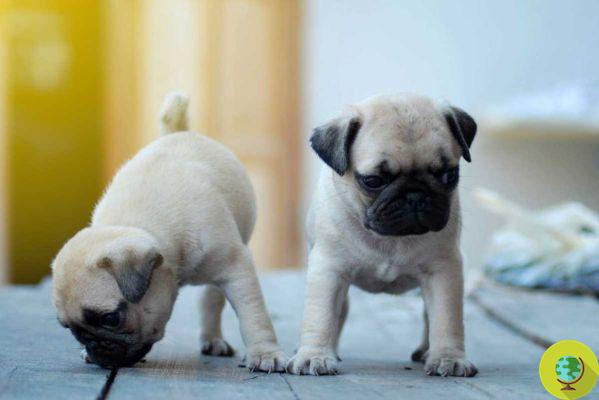
More and more wealthy people are turning to science to clone their beloved four-legged animal, funding a mind-boggling business that stands out as the happy choice of the elite. Its costs are in fact exorbitant and the whole process, in addition to being unethical, harms adoptions
He is about to end up run over, his mother saves him
In the United States, the Covid-19 epidemic and the crisis do not seem to have hindered some activities such as cloning your pet, a phenomenon that unfortunately is constantly increasing overseas. More and more families are opting for animal cloning, paying prohibitive costs for most of the inhabitants of the Earth, in order to have an exact copy of their pet.
$ 50.000 for cloning a dog, $ 30.000 for a cat, $ 85.000 for a horse and $ 1.600 if you want to keep the genes of your animal, to have it cloned later. This is the tariff of ViaGen Pets, the most famous cloning agency in America, based in Texas, to which famous personalities such as Barbara Streisand or private individuals have contacted, ordering their clone.
View this post on Instagram
A post shared by ViaGen Pets & Equine (@viagenpetsandequine)
In fact, the agency offers its customers various solutions to have a genetically identical copy of the animal they intend to clone and the requests received seem to be not lacking, indeed they have increased since the question is there.
We are cloning more and more pets every year, since we started the demand has grown. We have puppies that are born every week. We don't do a lot of advertising, most people come to us through word of mouth "
said Melain Rodriguez, ViaGen Pets customer service manager.
What does the cloning process consist of?
The cloning process first involves taking a tissue sample to store the genes of the animal that will be cloned. There are many techniques, but the most common involves the transfer of the somatic cell nucleus.
As EFSA explains, the nucleus of an unfertilized egg is replaced with the nucleus of a cell from the body of an animal to obtain an embryo which is subsequently implanted in the womb of surrogate mother who will then give birth to the clone.
The business of animal cloning has been stormed by many animal welfare organizations, including Peta, which defined it
a horror show: a waste of lives, time and money "
underlining that, while understanding the immense pain that owners feel for the loss of their animal, there are no valid reasons that can justify a unnatural laboratory practice implemented at the behest of the human being.
Contrary to what one might think, cloning damages animal welfare and its ethics, if we consider not only the suffering that the experiments imply, but the many mother-surrogate dogs employed by the agencies that have to carry out an artificial pregnancy to produce clones to order.
Another aspect that should not be underestimated is the impact of the cloning business on adoptions that are consequently curbed, taking away from the many souls who are waiting for a family in the shelters the possibility of being adopted.
Source: BBC
Follow us on Telegram | Instagram | Facebook | TikTok | Youtube
Read also:
- She pays $ 25 to clone her dead cat, the new frontier of the pet business


























